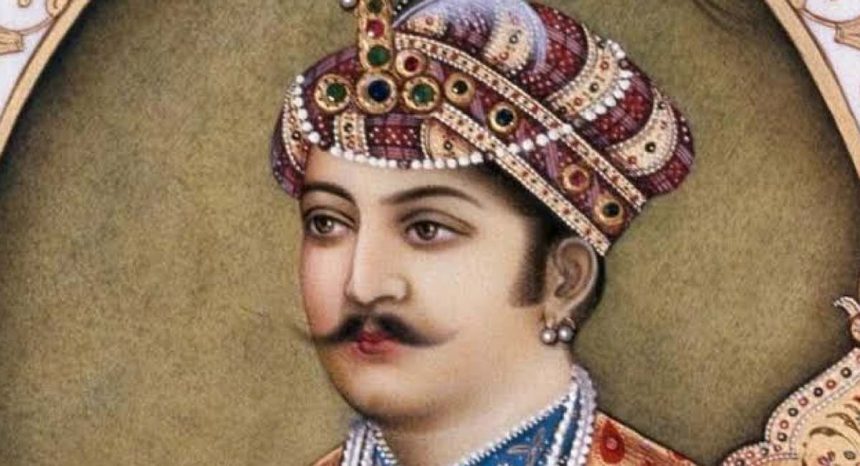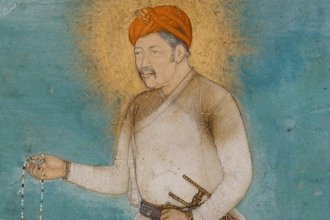Jalaluddin Muhammad Akbar, more widely known as Akbar the Great, is celebrated as the most influential Mughal emperor of India. Born in 1542, Akbar’s reign from 1556 to 1605 marked a significant period in Indian history, characterized by his innovative approaches to governance, religion, and culture. Among his many contributions, the establishment of a new religious doctrine in 1582, known as Din-e-Ilahi, stands out as a testament to his commitment to fostering unity among his diverse subjects.
The Birth of Din-e-Ilahi: A Fusion of Faiths
Din-e-Ilahi, which translates to “Religion of God,” was Akbar’s bold initiative to bridge the religious divide between Hindus and Muslims. Akbar envisioned a syncretic religion that incorporated the best principles of both Hinduism and Islam. His goal was to create a spiritual path that could be embraced by followers of both faiths, promoting harmony and mutual respect. Din-e-Ilahi, however, was not a new religion in the conventional sense but rather a moral and ethical framework that emphasized the unity of God and the brotherhood of all people.
Core Principles of Din-e-Ilahi
At its heart, Din-e-Ilahi was a religion that prioritized ethical conduct over ritualistic practices. Akbar advocated for the renunciation of worldly pleasures, luxury, jealousy, and pride. Instead, he encouraged his followers to cultivate virtues such as kindness, tactfulness, devotion to duty, and spiritual purity through continuous worship and prayer. In Din-e-Ilahi, even the killing of animals was considered sinful, reflecting Akbar’s deep respect for all forms of life.
Unlike other religions, Din-e-Ilahi had no sacred scriptures or ordained priests. Akbar’s intention was to promote a personal, direct relationship with the divine, free from the intermediaries that often characterized religious practices of the time. This emphasis on personal spirituality made Din-e-Ilahi unique, but it also limited its appeal, as many people were accustomed to more structured religious frameworks.
The Legacy of Din-e-Ilahi: A Brief Experiment in Religious Unity
Despite Akbar’s noble intentions, Din-e-Ilahi did not gain widespread acceptance. The religion’s lack of formal structure and its departure from established traditions made it difficult for many to embrace. Only a small number of Akbar’s courtiers and close associates became followers of Din-e-Ilahi. After Akbar’s death in 1605, the religion quickly faded into obscurity, largely because it lacked the institutional support and broader appeal needed to sustain it.
Akbar’s Reign: A Period of Unprecedented Expansion and Reform
Akbar’s religious innovations were just one aspect of his remarkable reign. Ascending the throne at the tender age of 14 following the death of his father, Humayun, Akbar demonstrated extraordinary military and administrative skills. By 1562, he had successfully expanded the Mughal Empire, securing territories such as Punjab, Multan, Gwalior, Kabul, and the fertile plains of the Ganges and Yamuna rivers.
Under Akbar’s leadership, the Mughal Empire grew to encompass a vast region extending from the Hindukush Mountains in the north to the Godavari River in the south, and from Bengal in the east to Gujarat in the west. His strategic conquests and diplomatic acumen enabled him to bring 15 princely states under Mughal control by the time of his death in 1605.
Akbar’s Legacy of Tolerance and Reform
One of the hallmarks of Akbar’s rule was his policy of religious tolerance. Recognizing the diverse religious landscape of his empire, Akbar sought to build trust and cooperation among his Hindu, Muslim, and other subjects. His open-minded approach fostered an environment of relative peace and stability, which was crucial for the consolidation of his empire.
In addition to his religious policies, Akbar implemented significant reforms in the central administration, currency exchange, and tax collection systems. These reforms streamlined governance, increased revenue efficiency, and contributed to the overall prosperity of the Mughal Empire.
Akbar’s Enduring Influence
Akbar the Great remains a towering figure in Indian history, not only for his military conquests and administrative reforms but also for his visionary attempts to create a more inclusive and harmonious society. While Din-e-Ilahi may not have endured, it reflects Akbar’s deep commitment to fostering unity among his diverse subjects. His legacy of tolerance, innovation, and reform continues to inspire and shape the cultural and political landscape of India to this day.









